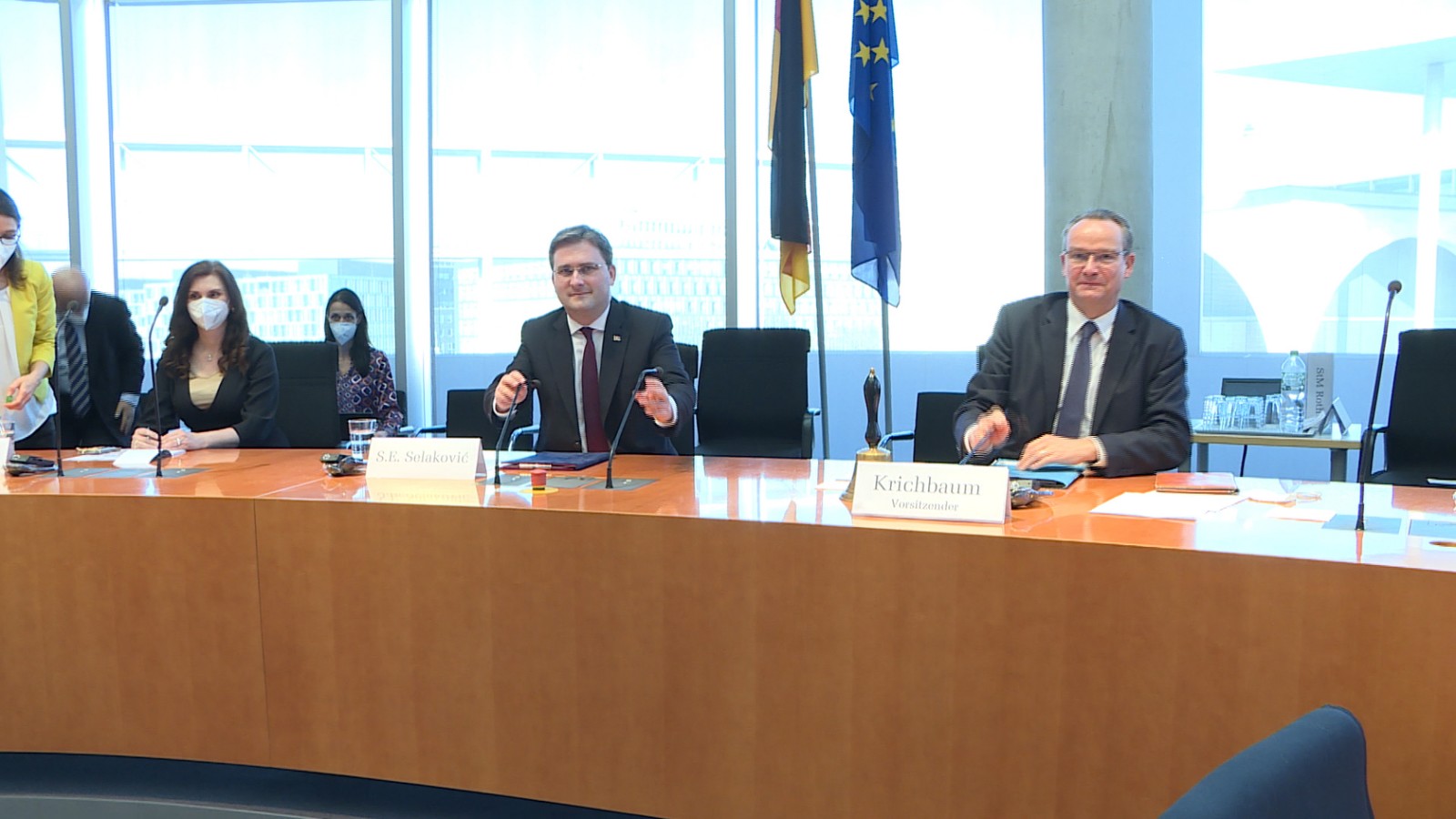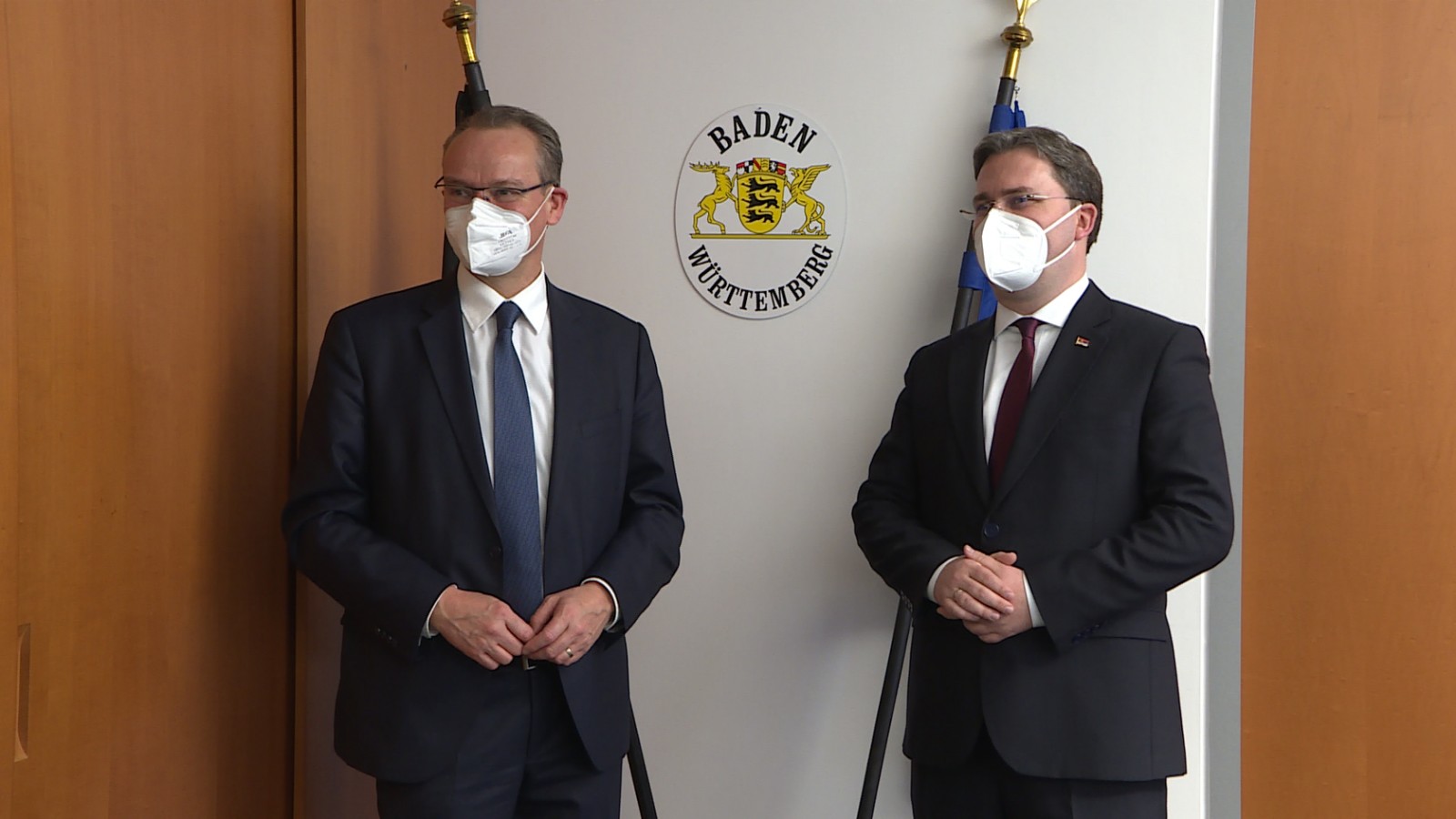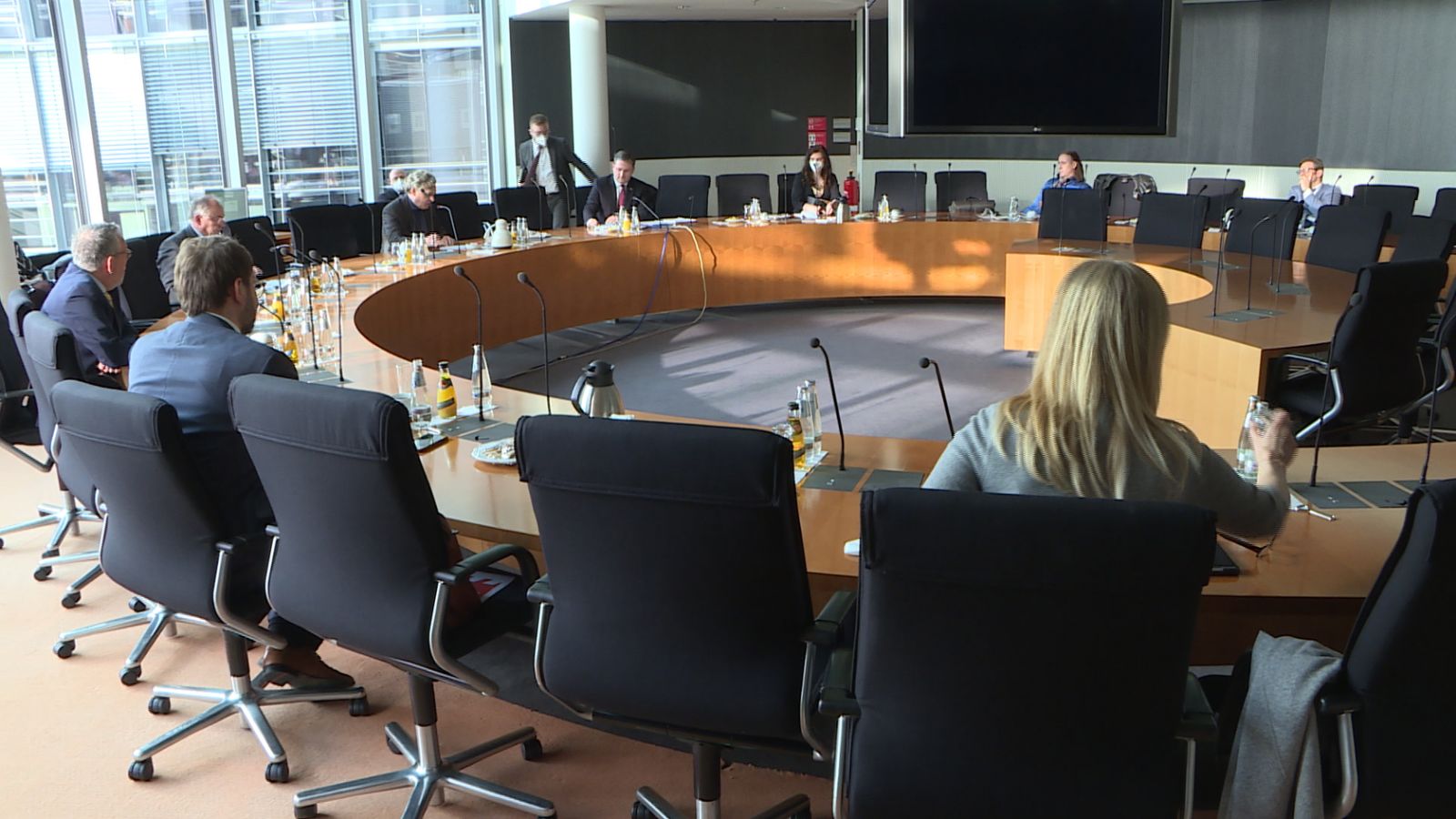03.03.2021.
Minister of Foreign Affairs Nikola Selakovic launched his official visit to Berlin by addressing the German Bundestag Committee on EU Affairs where he stated that Serbia, with full membership of the EU as the foreign policy priority, remained committed to the EU-facilitated dialogue with Pristina while pointing to the lack of trust as a major problem in this process.
Selakovic underlined that the issue of Kosovo and Metohija was a topic of utmost importance not only for Serbia, but also for preserving peace and stability in the entire region.
"I am convinced that this issue is therefore important for Germany as well, because we have witnessed that any instability in the Balkans ultimately had an impact on the German society. It is the issue of finding a lasting and sustainable solution to the issue of Kosovo and Metohija", Selakovic said.
He emphasized that Serbia supported the process led by the EU, but was also aware of the role played by the Member States, and primarily Germany, in the process.

"This is why we need your understanding and support. Serbia remains committed to the EU-facilitated dialogue between Belgrade and Pristina", he underscored.
Selakovic noted that the lack of trust was a problem in this process, and that Serbia insisted that what is agreed in the course of the dialogue with Pristina must be implemented strictly and without exception, recalling that Belgrade did a lot so far, while Pristina for 2,874 days now refused to implement the part concerning the establishment of the Community of Serb Municipalities.
"This is an obligation of Pristina and our side will insist on its implementation, primarily because we want a better and safer life for Serbs in the territory of Kosovo and Metohija", Selakovic underlined.
He stressed that Serbia also strived to preserve its Serbian Orthodox cultural heritage in the territory of Kosovo and Metohija, which was of immeasurable importance for the entire Christian world.
"That is why we are concerned about the growing number of activities that are being carried out in a synchronized and open way by the Pristina and Tirana authorities aiming to realize the idea of a "greater Albania", which poses a threat not only to Serbia, but also to the stability of the entire region", the Serbian Foreign Minister warned adding that Serbia therefore expected strong and unequivocal action on the part its partners in suppressing such ambitions.
"It is necessary for all of us to understand the seriousness and long-term character of the threat to which our region is exposed by the promoters of the "greater Albania" project", Selakovic emphasized.
He stated that Belgrade was ready to continue the dialogue with Pristina in good faith, and that the result of the dialogue should be a compromise, sustainable solution, acceptable to both sides and in the interest of all - both Serbs and Albanians.
"However, this cannot imply that Serbia loses everything in this process and agrees to its state interests being fully disregarded", he underscored.
Selakovic emphasized that Serbia greatly appreciated the support that Germany continuously extended to the EU enlargement policy and the importance it attached to the Western Balkan region, and that it understood the "strict but fair" principle that Germany adhered to.

"Full membership of the European Union has been one of the key foreign policy priorities and a strategic goal of all Serbian Governments in the past 20 years, including the current one. We are aware that the path to membership is long, demanding and accompanied by numerous challenges from different sides", he added reminding that Serbia had accepted the new methodology.
He said that the answer to the question asked by many - why Serbia wanted to become a member of the EU at a time when the Union itself was going through a period of various crises - was that it was so because Serbia, in terms of its values, belonged to this group of countries and the European community of peoples.
Selakovic also pointed out that the EU was Serbia's number one trade and economic partner, because the EU was our top export destination, and we imported even more from the Union, that most investments in our country came from the Union, and that a large number of our nationals were attending universities in the European Union, etc.
"Therefore, our position is clear, we want full membership of the Union and we need your help to complete and accelerate the accession process", he underlined.
He added that Serbia embarked on the European path also because of the transformative power of the process of accession negotiations, as it wanted to enable a better life for its citizens.
Selakovic also presented the economic successes of the Government, stressing that Serbia was the leader in Europe in terms of economic growth, which would be formally confirmed at the end of March, when the first quarterly review for this year is published.
He added that such a result was achieved owing to the swift opening of our economy after the first wave of the pandemic, as well as the reform measures undertaken by the Serbian Government since 2014.
Minister Selakovic underlined that Serbia was a link and an important part of the corridor between Western Europe and Istanbul, reminding in this connection that the first section of the motorway from Sofia to the border with Serbia was completed, and that the missing part on the Bulgarian side was supposed to be built by the end of 2021.

When it comes to the rule of law, Selakovic underlined that Serbia did plenty in the previous years, noting that the proposal of constitutional amendments was adopted and submitted to the Parliament for further procedure, as part of the process of constitutional changes that our country had committed to in the EU accession process.
With regard to the media freedom, Selakovic pointed out that, in Serbia, the freedom of the media was guaranteed by the Constitution and legal regulations, which were fully harmonized with the EU standards, and that our country lent its unreserved support to media freedom, fully agreeing with the assessment that it is the foundation of every democratic society.
He underscored that results in this area were not lacking either, recalling that a new Media Strategy was adopted in 2019, while the Action Plan for the implementation of the Media Strategy was adopted late last year.
"A Working Group for the Security and Protection of Journalists was also established, as well as a Working Group for monitoring the implementation of the Action Plan for Media Strategy. All requests to initiate court proceedings against the media or journalists were withdrawn from the procedure. All criminal charges against media representatives were withdrawn as well. The Republic Public Prosecutor has issued an instruction for public prosecutors, ordering urgent action in cases involving journalists. The instruction also provides for sanctions in case of threats, violence or endangering the safety of journalists and media workers in an urgent procedure", he said.
Source: Tanjug